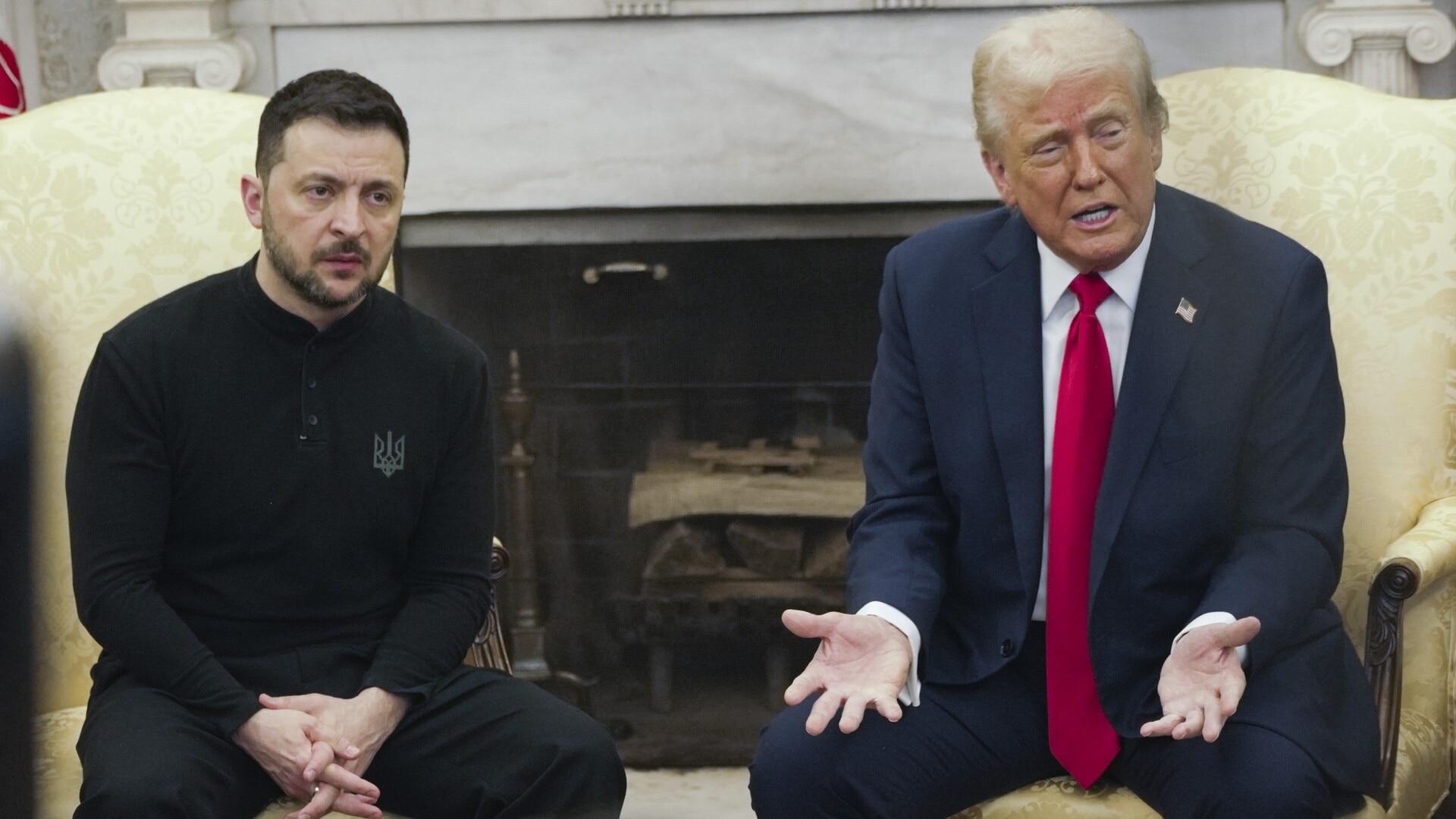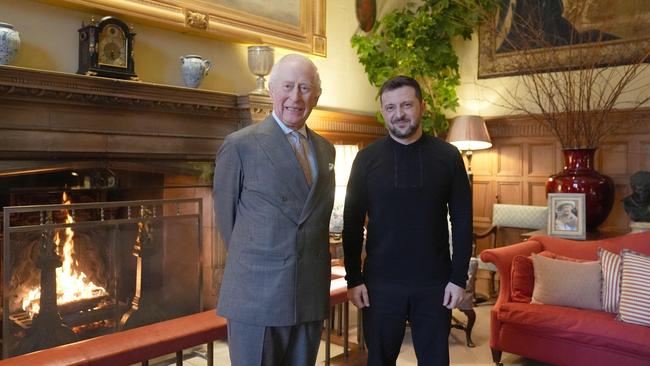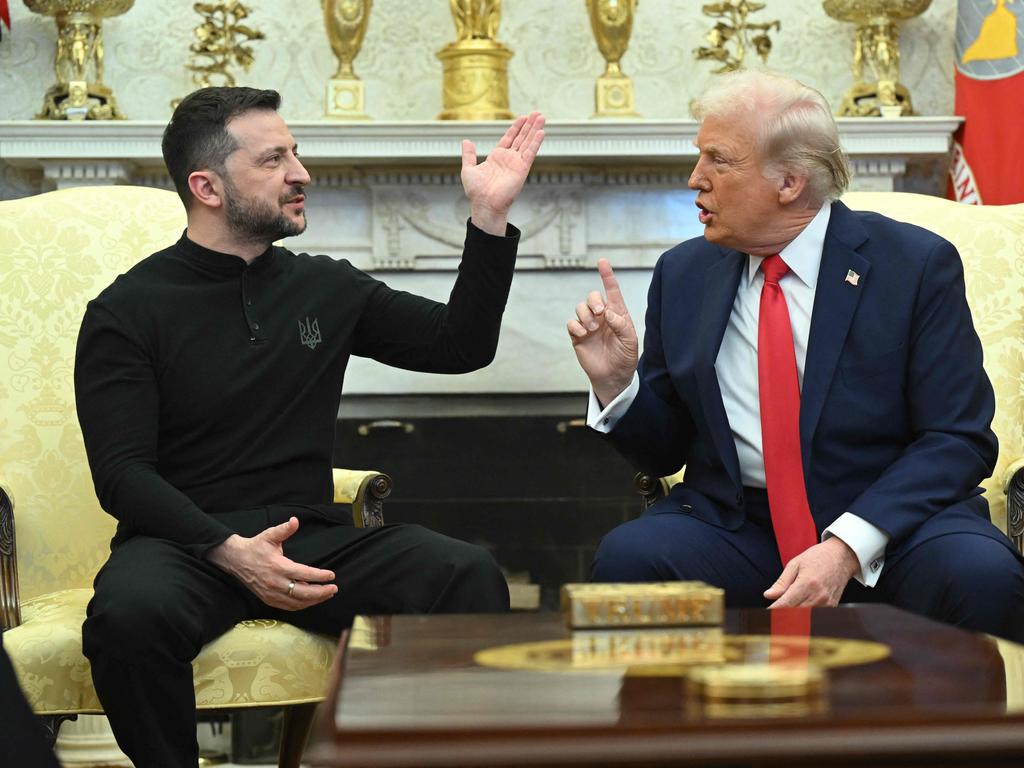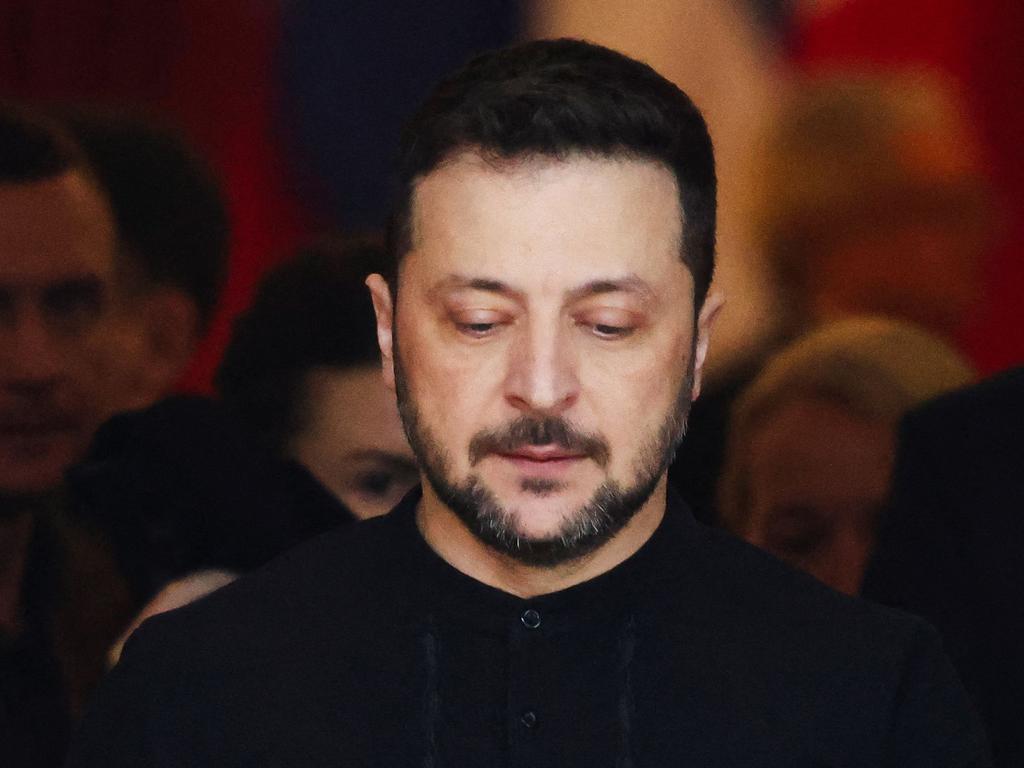Albanese and Dutton have little appetite for sending troops to Ukraine
More than two decades after Australia joined the US-led ‘coalition of the willing’ in Iraq, there is little enthusiasm among the nation’s political leaders for a similarly billed deployment to Ukraine.

More than two decades after Australia joined the US-led “coalition of the willing” in Iraq, there is little enthusiasm among the nation’s political leaders for a similarly-billed deployment to Ukraine that even America is steering clear of.
British Prime Minister Keir Starmer proposed the peacekeeping coalition to European leaders on Monday AEDT, saying the UK would work with France and a small number of other countries to develop a ceasefire plan that would be backed by “boots on the ground, and planes in the air”.
But just weeks out from a federal election, neither side of Australian politics is prepared to commit troops to such a mission.
Peter Dutton lavished praise on Volodymyr Zelensky on Monday following his bruising Oval Office encounter last week with Donald Trump, describing the Ukrainian President as a “modern day hero” for standing up to the “murderous dictator” Vladimir Putin.
But, like Mr Trump, he said European nations needed to “step up” and deal with the security threat on their eastern frontier.
“There’s no need for Australia to send troops, but we should continue our support for Ukraine,” Mr Dutton said.
“The European nations, particularly the bigger nations, can’t continue to rely for financial support or military support from the United States. They need to chip in themselves.”
Anthony Albanese said Australia’s longstanding support for Ukraine, including $1.3bn in military equipment, was about “doing what’s right, but also what is in Australia’s national interest”.
“The brave people of Ukraine, led so extraordinarily by President Zelensky, are fighting not just for their national sovereignty and for their democracy,” the Prime Minister said as he opened a cabinet meeting.
“They are fighting for the international rule of law. And it is an easy choice that Australia has made.”
But with memories still fresh of the brutal Iraq and Afghanistan campaigns, Labor is not contemplating another high-risk military deployment.
“We will consider the details of any proposal, but the deployment of Australian troops to support peacekeeping forces in Ukraine is not under consideration at this time,” a government spokeswoman said.

Former prime minister Tony Abbott offered a lone voice of support for a direct role for Australia in Ukraine under the Starmer plan.
“If we expect British help under the AUKUS deal – such as rotating a Royal Navy sub through Perth – we’ve got to step up too,” Mr Abbott told The Australian. “We’ve long been helping to train Ukrainian infantry and should certainly be prepared to make a significant commitment to policing any ceasefire.”
Sir Keir hosted Mr Zelensky for crisis talks with 18 European leaders in London amid horror on the continent at Mr Trump’s berating of Mr Zelensky at the White House last week, and his expressions of trust in Putin.
Declaring “we are at a crossroads in history”, the British Prime Minister proposed a plan to end the war in Ukraine backed by a “coalition of the willing” to guarantee a lasting peace.
The plan, which would begin with a one-month truce, would require ongoing military and economic aid for Ukraine, a commitment to lasting Ukrainian sovereignty, and a boost to Kyiv’s capabilities to deter any future invasion.
“Europe must do the heavy lifting,” he said, adding the agreement would need US backing.
“Let me be clear, we agree with Trump on the urgent need for a durable peace. Now we need to deliver together.”

The summit came just days after Mr Trump ordered Mr Zelensky to leave the White House, telling the Ukrainian President he was “not ready” for peace with Russia after an explosive verbal altercation between the leaders.
Only Britain and France have so far declared they are prepared to commit peacekeeping troops, but Sir Keir said “a number of other countries” were preparing to join the coalition.
Pointing to Canadian Prime Minister Justin Trudeau’s attendance at the summit and the country’s training of Ukrainian troops on British soil, he suggested non-NATO, non-European allies could also be involved.
French President Emmanuel Macron, who co-sponsored the plan, said the truce would initially suspend fighting in the air and at sea, and end attacks on energy infrastructure. A ground-fighting truce would come later, he said.
Peacekeepers would be deployed at a later date, Mr Macron said, adding: “There won’t be European troops on Ukrainian soil in the coming weeks.”
Mr Macron also suggested European countries should raise their defence spending to between 3.0 and 3.5 per cent of GDP to respond to Washington’s demands on its allies and in the face of Russia’s militarisation.
“For three years, the Russians have spent 10 per cent of their GDP on defence,” he told Le Figaro. “So we have to prepare for what’s next.”
Australia’s reluctance to join a peacekeeping force in Ukraine comes despite the ADF training more than 2000 Ukraine soldiers since the beginning of 2023 under Operation Kudu.
The RAAF also deployed a E-7A Wedgetail aircraft and about 100 personnel to Germany for six months to provide early warning of Russian threats.






To join the conversation, please log in. Don't have an account? Register
Join the conversation, you are commenting as Logout